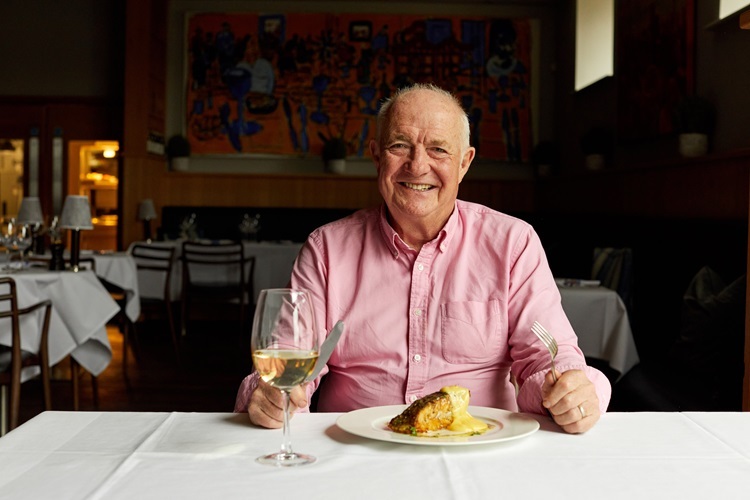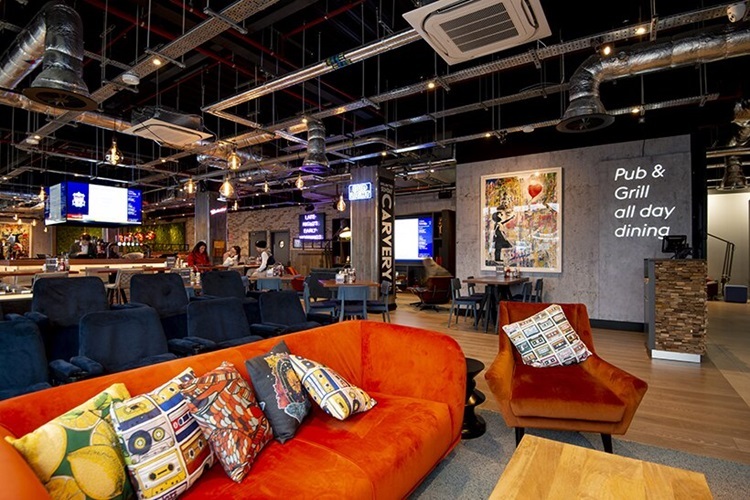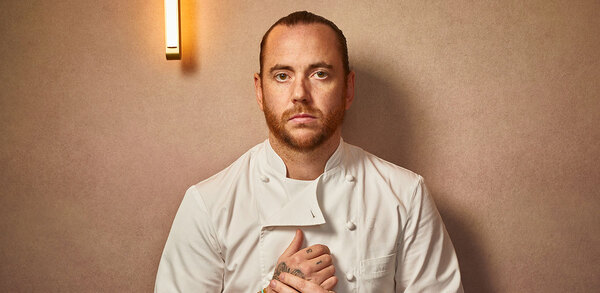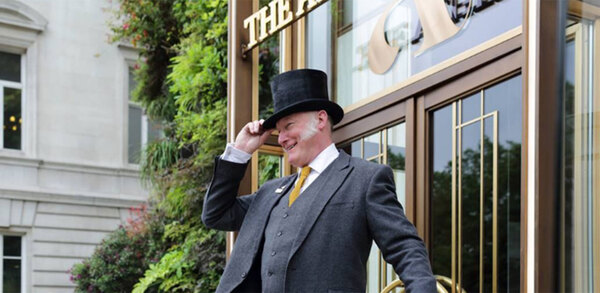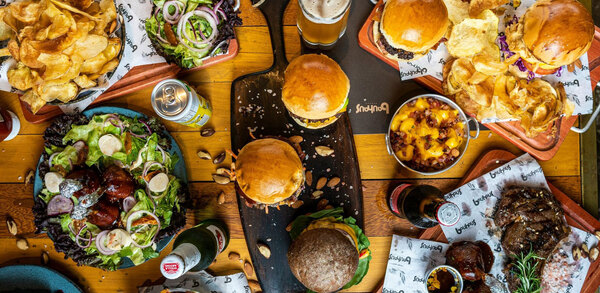How to create a hospitality marketing strategy to reconnect with your customer base
While pent-up demand might be driving immediate sales post-lockdown, speakers at this year’s The Caterer Marketing Summit highlighted the importance of a continuous, effective communication strategy, guaranteeing custom for the years to come. Kathleen Hall reports.
Marketing budgets are often the first to go in difficult times. And with the end of lockdown bringing a huge amount of pent-up demand, hospitality would be forgiven for viewing it as an unnecessary area of spend.
But doing so would be a mistake. Speaking at The Caterer’s online Marketing Summit this week, Victoria Murden, marketing director at the Red Carnation Hotel Collection, said that despite its Summer Lodge site in Dorset being extremely popular, it is still strongly focused on its marketing activity.
“Right now we might be busy, but in a year’s time there will be people who weren’t able to get to Summer Lodge,” she said. “So we need to stay in touch with those guests to make sure we are still communicating with them and reminding them we are here.”
And when it comes to demand, not all sites are equal. Red Carnation has 20 hotels around the world and six in London “where it is very much not the case that there is a huge amount of pent-up demand”. She said: “A lot of our efforts are going into encouraging people to go into the cities and into London.”
Petra Clayton, chief executive of hospitality marketing agency Custard Communications, said businesses that stop and start their marketing risk putting themselves on the back foot. “We always fall into a trap of thinking marketing is promotion. That is just one element of it. But marketing should absolutely be running through the veins of your business and you should be looking at things like how to adapt to the changing and evolving customer.”
We always fall into a trap of thinking marketing is promotion, but marketing should be running through the veins of your business
Martin Evans, managing director of consultancy the Tourism Business, agreed it’s important to look beyond the short-term and market for events such as weddings, international travel and large conventions, all of which have a long lead time. “These are all areas that you have to market for this year to get them in 2022 or even 2023. I’m a great believer in marketing 365 days of the year.”
Nevertheless, the profession has been hit hard over the last year. Evans estimated that the number of people working in hospitality with marketing in their job title may have dropped by around 15%, while Clayton believes it may be as high as 40%. “Marketing is always the first thing to be paused or cut and I think that is wrong,” she said.
“We’re seeing people going to other sectors because they have these transferable skills and that needs to be stopped as soon as possible. We need to make marketing in hospitality a profession.”
Clayton believes there are opportunities ahead for savvy operators to better understand and communicate with customers by utilising data for marketing purposes – an area in which hospitality has often lagged behind. “I hear a lot of frustrations from the industry, [with many asking] what can we do to be more innovative?”
The role of tech
For a number of hospitality businesses, technology has gone some way in answering that question. Joel Robinson, digital and technology director at the Azzurri Group – which owns Zizzi, Ask and Coco di Mama – used the past 18 months to re-platform its systems to create a single customer view as well as introducing an accompanying automation platform.
“During lockdown there was never really a better opportunity to do that than the three months when we were effectively unable to operate as a restaurant,” he explained. “That was a pretty scary thing because if we did it unsuccessfully, we wouldn’t have been able to recommunicate with our customers that we were reopening come the other side of the lockdown. But we took the risk and got there with about a week to spare, which was pretty impressive given the size of the change.”
He said the new platform had given it “the agility to segment in a much more dynamic way”. This was invaluable in helping the company communicate with customers in different parts of the country who were facing different levels of restrictions last year. As we emerge from the pandemic, he said Azzuri Group would be seeking to “leverage the agility of the new platform to be much more sophisticated for customer experiences”.
Robert Alley, chief operating officer at Roomzzz Aparthotels, has also used the opportunity to future-proof his marketing with technology. In the past 18 months the business has introduced a marketing automation system, CRM, a new database and insights platform and developed a loyalty database integrated with its booking systems. All of that has improved the customer journey, introduced personalisation and made the business more digital. “It’s probably been two-and-a-half years of work, but we’ve seen results in a matter of weeks of reopening. And it is a massive piece of the puzzle for us,” he explained.
Thomas Magnuson, chief executive of Magnuson Hotels, believes the key area of focus now is how to deal with staffing issues. “Every- where I go – and I talk to dozens of owners a day – labour shortage is the number one thing [that is mentioned]. How do we work with the core people we have?” His company has just installed a housekeeping management functionality to help better schedule labour.
Robinson echoed the point that staff shortages remain the key challenge, but he still believed there was an opportunity to use technology to grow the sales funnel – whether through self-service or technology “that enhances the customer experience before they are [at the venue] and after they are there, to grow love for the brand”.
Everyone working in hospitality seemed to agree on one thing: finding new ways to communicate with customers will be crucial to success in the post-pandemic market.
Eight tips to improve your social media content

Mark McCulloch, founder of marketing specialist Supersonic Inc, said getting social media right is more about making sure your brand resonates with customers, rather than expecting each post to lead to a direct sale. Here are his top tips on getting the most out of organic social media.
- Thumb-stopping content: This is something that makes you stop as you are scrolling through content. Think about what made you stop and bring it to your brand. Often this type of content won’t explicitly be trying to sell anything.
- Velocity: Get obsessed with velocity. That means how many likes, shares and comments you get on a post in the first couple of minutes. If that post doesn’t have velocity, you might as well take it down and try again later. Social media companies will reward reactions by widening posts out to more people.
- Captions: Make sure there’s an awesome caption. This is just as important sometimes as the image. So if you’ve got sass and really cool stuff going on in your caption, as well as your image, that’s a big deal.
- Hashtags: Not doing research and making up your own hashtags is a big no-no, as they are never going to trend and people won’t be searching for them. Make sure you are giving yourself a chance to be found.
- New tools: Use every new tool that social media channels throw at you, such as Reels on Instagram or polls on LinkedIn.
- Community comments: Comment on your community all the time. This is a conversation – it’s meant to be social… You need to grow your community, attend to it, water it and interact.
- Frequent posts: Operators should be looking at doing 60 to 80 posts a day. When you look at all the available channels, the stories and all the other bits and bobs, it’s not that huge a number.
- Constant jabs: It’s all about the ‘jab, jab, jab, right hook.’ Keep entertaining people with interesting things. And then eventually ask for that sale.
Hotel room pricing

When it comes to pricing rooms, there’s a delicate balancing act. Asking too much in areas of high demand could alienate loyal customers, while under-pricing for low availability sites could lead to a race to the bottom.
Petra Clayton of Custard Communications said the industry needed to make sure it keeps prices static. “We don’t want people driving the price down in cities; that’s critical and very much part of the marketing we’re working on now.”
And while it’s to be expected that prices are rising in places of high demand, that can come with its own risks too. “We need to be careful of overpricing and overpromising, and then failing to deliver an incredible experience,” she added.
Martin Evans of marketing consultancy the Tourism Business agreed. “It’s a really complex equation. Where it’s interesting is the divergence between new and repeat customers: your repeat customers do not want to see that it is even 15% more than it was last year.” He believes it’s legitimate to divide those two types of customer “and offer something special while keeping prices still or adding value to your repeats, while also recognising there’s a lot of new customers in the market”.
Rates should only ever be reduced if it will bring in new custom. “There’s this economic term: price elasticity. And the fact is, often because of your location, [the discount] isn’t enough to convert the new customer. And if that’s the case, it’s not the solution.”
Recovering dropped prices is also hard, he added. “When the recession happened in 2008-2009, it took about six years to recover average room rates across the sector. So let’s not do that again!”
Victoria Murden from the Red Carnation Hotel Collection said rather than dropping rates in London, it is focusing on offering add-ons such as greater flexibility. “So check-in at any time, check-out at any time, cancel up until 6pm on the day of arrival… That’s how we can really enhance the stay without reducing pricing.”
Of course, added flexibility creates potential for more last-minute cancellations, but she said that’s where marketing and comms come in. “We do have contingency [plans] of keeping in touch with guests… So they don’t just receive [one] confirmation email from us,” she said. “It’s so important to keep the guests excited about their stay right up until they arrive.”
It’s so important to keep the guests excited about their stay right up until they arrive
Photo: mrmohock; 13_Phunkod; Gutesa/all shutterstock.com






